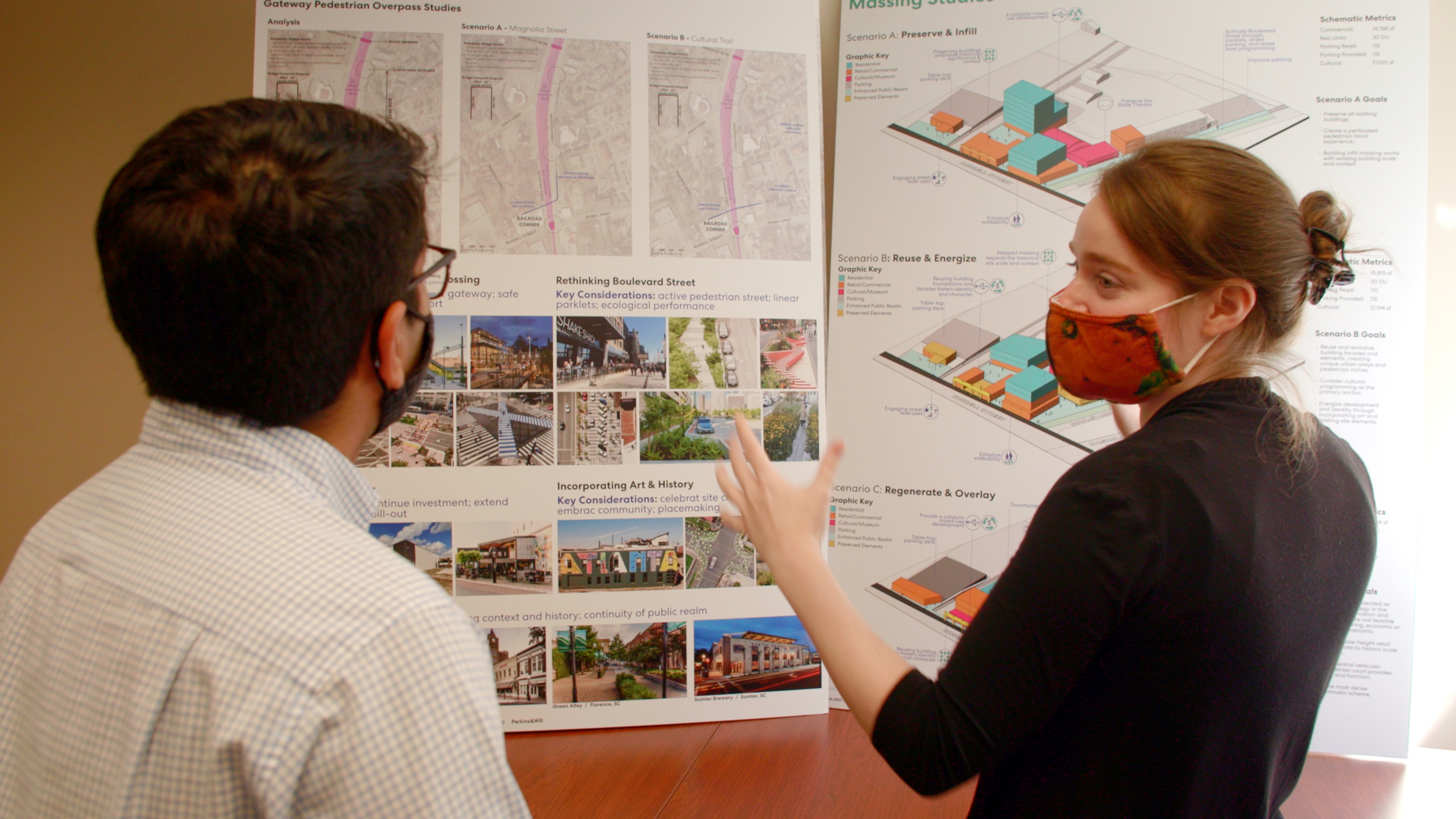NC Communities: Submit Projects for Free Revitalization Analysis by Students
Shortly after its founding in 2011, the Development Finance Initiative at the UNC School of Government began creating opportunities for graduate students to apply key community revitalization methods in real-world settings. Participants enrolled in a course titled Community Revitalization Techniques are given the opportunity to work on community-based projects throughout North Carolina that have been submitted for consideration, and work is carried out at no charge for the local government.
Applications are now open for communities to submit revitalization projects for graduate students. Local government officials are invited to submit projects using this form.
“These projects allow students to gain hands-on, practical experience in real estate development feasibility analysis, applying concepts that they learn in their graduate coursework to the service of North Carolina communities,” said Marcia Perritt, associate director of DFI. “By engaging with local government staff and community stakeholders, students also get to hone their listening skills, arguable the most important practice for a community development practitioner.”
Selected projects will receive best consideration if they meet certain parameters:
The property must be owned by a local government or civic-oriented nonprofit, or there should be a clear path to obtaining site control
The property must be open to development through private investment for private use
The development idea should not be pre-determined (e.g., “Please turn our old city hall building into a community center.”)
The program provides students with an unparalleled learning experience. While local governments choose if and how to utilize final analyses by students, participating in the program can lead to valuable insights for communities.To date, more than 40 of these “class” projects have been executed in communities across North Carolina. Examples of previous projects students have worked on includeconducting an analysis of financially feasible uses for the site of a demolished jail in Wilkesboro and assessing the redevelopment potential of an iconic downtown building in Graham.
Participating students work in academically diverse interdisciplinary teams with students representing programs including City and Regional Planning, Public Administration, Business, Public Health, Law, and Information and Library Science. This structure allows individuals to bring their own unique perspective and experience to the project. Their work within the course includes conducting market research, feasibility analyses, and financial modeling for participating communities.
“Students who have taken the course have gone on to work in local government, community development, downtown redevelopment, and a number of real estate or real estate-adjacent fields,” Perritt added. “Many students have relayed that their experience in the course was a primary talking point in later job interviews.”
Course graduate Bill King is once such student. He is now the president and CEO of the Downtown Raleigh Alliance.
“My experience in the DFI class was absolutely foundational for my career in downtown economic development,” King said. “I was given real-world experience with municipalities and communities across North Carolina from large cities to small towns and was able to quickly build a portfolio that showcased a diverse set of skills and served as the launching point for my career in this field.”
Interested communities may submit projects for consideration using this form or by email to Marcia Perritt (mperritt@sog.unc.edu) and/or Tyler Mulligan (mulligan@sog.unc.edu). If you have questions, contact Marcia Perritt at mperritt@sog.unc.edu.
DFI partners with local governments to help them attract private investment for transformative projects in their communities and counties. To date, DFI has worked on more than 200 projectsthat have attracted more than $1 billion in private investment for North Carolina communities.To learn more about DFI, visit dfi.sog.unc.edu.
Published June 22, 2022



